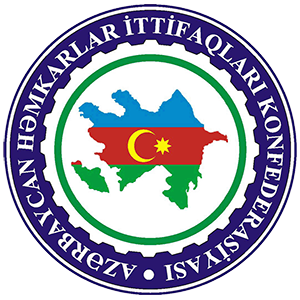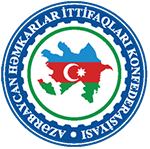The 18th meeting of the Executive Committee of the Pan-European Regional Council (PERC) was held on June 21 in Brussels. This was PERC’s first live meeting after COVID-19. More than seventy representatives from member organizations participated in this event, which was moderated by the president of the Regional Council, the chairman of the Confederation of Georgian Trade Unions Irakli Petriashvili.
Petriashvili introduced the participants to the issues on the agenda.
Then, the General Secretary of the European Trade Union Confederation and PERC, Luca Visentini, gave a speech and informed about the activities of trade unions in Ukraine and Belarus.
He said that trade unions in Belarus are under attack. The leaders of the Congress of Democratic Trade Unions have been arrested and the organization is in danger of being dissolved.
The PERC Executive Committee called for the immediate release of the imprisoned trade union leaders. The United Nations and the European Trade Union Confederation expressed their support for the measures taken against the Belarusian government. The meeting also condemned the fact that more than 5 million jobs were destroyed in Ukraine, 15 million workers were injured, and more than 6 million citizens left the country to seek refuge in the European Union. The threat posed by Russian aggression to the working population and trade unions was discussed.
Extraordinary solidarity support for Ukrainian trade unions, refugees and trade unions of the countries helping them was expressed in the speeches. It was noted that the war also increases the cost of living and energy. The weight of these costs falls on the working families.
The Executive Committee welcomed the proposal to give Ukraine and Moldova the status of candidate for membership in the European Union; but noted with regret that this status was not granted to Georgia. It was recalled that the way to join the European project is through respect for workers’ rights and social dialogue. Also, a positive approach to the integration of the Balkan countries to the West and their attempts to join the European Union were evaluated as priority issues.
Sharan Barrow, Secretary General of the International Trade Union Confederation, also spoke at the event. He spoke about the next congress of the International Trade Union Confederation to be held in Melbourne on November 17-23, 2022. It also highlighted the decisions of the International Labor Conference, especially the success of the trade union campaign to include occupational safety and health as fundamental rights of workers, and the election of the ILO Director General.
The Executive Committee then discussed the role of PERC in the preparation of the Congress, especially in the formation of the decision-making bodies of the ITUC, as well as the Women and Youth Committees.
The guiding principles for the selection of representatives to the General Council and the Executive Bureau were supported by Luka Visentini, Secretary General of PERC. The Chairperson of the Women’s Committee, Sabine Slegers, presented the delegation of the Women’s Committee of PERC to the Women’s Committee of ITUC.
PERC Youth Committee activists were called to actively participate not only in the conference to be held on October 6-7, but also in the reconstruction of the PERC Youth Committee.
Agil Dadashov, Deputy Chairman of the Confederation of Trade Unions of Azerbaijan, spoke at the event.
He spoke about Azerbaijan’s aid to Ukraine, the financial support of the Confederation of Trade Unions of Azerbaijan to war refugees. Then, taking a historical perspective, he reminded that 30 years ago, Azerbaijan was invaded, 20 percent of its land was occupied by Armenia by force of arms, nearly 1 million people became refugees and displaced, thousands of civilians were brutally killed and taken hostage.
“At that time, the West and the world’s leading countries were indifferent to this tragedy of our people and kept silent about the occupation. Back then, the leadership of our country urged the world not to allow double standards in politics. He raised the alarm that such a policy would lead to disasters on a larger scale. And so it happened. “If the world wants to live in peaceful conditions, it should approach the occupation in its own name and not allow double standards,” he said.



